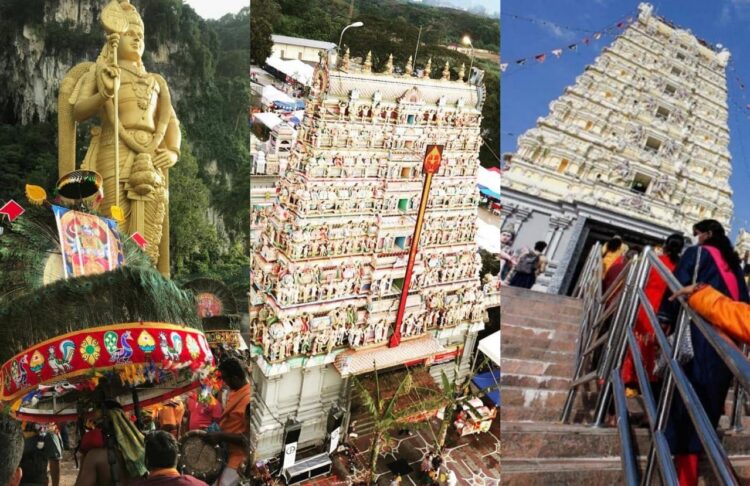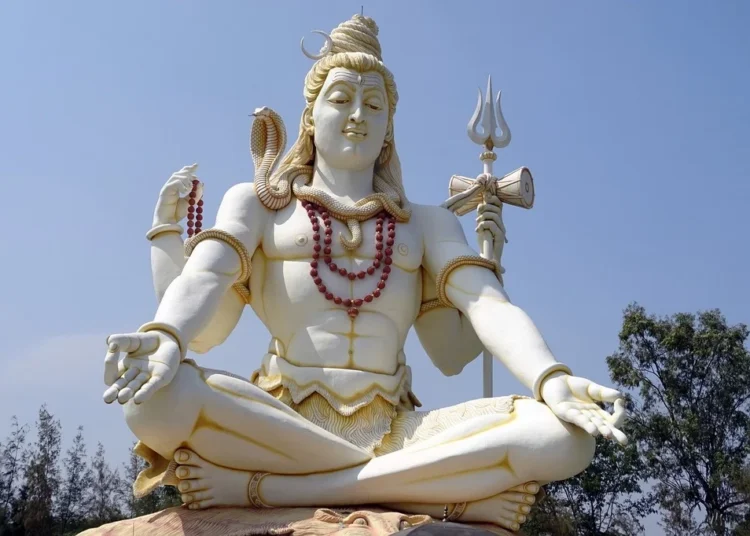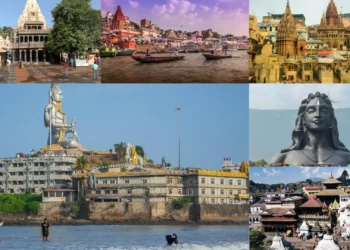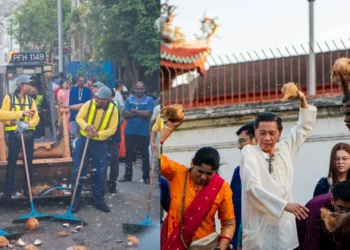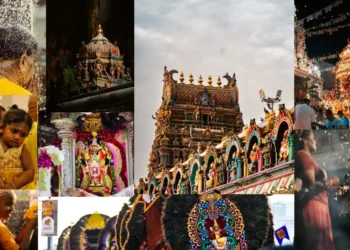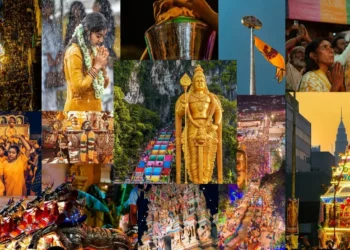Thaipusam, also known as Thaipoosam, is a revered Tamil Hindu festival observed on the first full moon day of the Tamil month of Thai, aligning with the auspicious Pusam star. This significant celebration is dedicated to commemorating the triumph of the Hindu deity Murugan over the nefarious demon Surapadman, achieved through the use of a divine spear bestowed by Parvati.
Thaipusam is a time when devotees come together to express their devotion and gratitude to Lord Murugan. The festival entails a diverse array of ritualistic practices, including the profound acts of taking kavadi, bearing milk pots, and engaging in piercing ceremonies. Among these, the ceremonial observance of taking kavadi stands out as a significant and symbolic spiritual journey undertaken by devoted participants. During this ritual, devotees carry a physical burden known as a Kavadi, a symbolic representation of their spiritual dedication and reverence. This act of sacrifice is not merely a physical challenge; it is perceived as a profound means of balancing a spiritual debt and demonstrating the deep commitment of the devotees to their faith.
This festival is celebrated with fervor and devotion in Malaysia, reflecting the country’s rich cultural diversity. The festival, dedicated to Lord Murugan, is a time for spiritual reflection, penance, and vibrant processions that captivate locals and visitors alike. Among the numerous Murugan temples in Malaysia, Batu Caves, Kallu Malai, and Thanneermalai stand out as iconic landmarks that play a central role in the Thaipusam celebrations.
Batu Caves Sri Subramaniar Swamy Temple
Sri Subramaniar Swamy temple, Batu Caves is the most renowned Murugan temple in Malaysia. The towering golden statue of Lord Murugan at the temple serves as a striking symbol of the religious significance of the site. Thaipusam celebrations at Batu Caves draw devotees and tourists from all over the world.
Every year, in conjunction with Thaipusam, the silver chariot embarks on a ceremonial journey from Sri Maha Mariamman Devasthanam, reaching Batu Caves on the eve of Thaipusam. Upon its arrival at the Sri Subramaniar Temple within Batu Caves, special prayers are conducted, accompanied by the significant ritual of kodiyetram. During this sacred ceremony, the “seval kodi” or rooster flag is ceremoniously raised, symbolizing the commencement of the Thaipusam festival. The act of raising this flag holds great significance, serving as the official marker that heralds the beginning of the revered Thaipusam celebration.
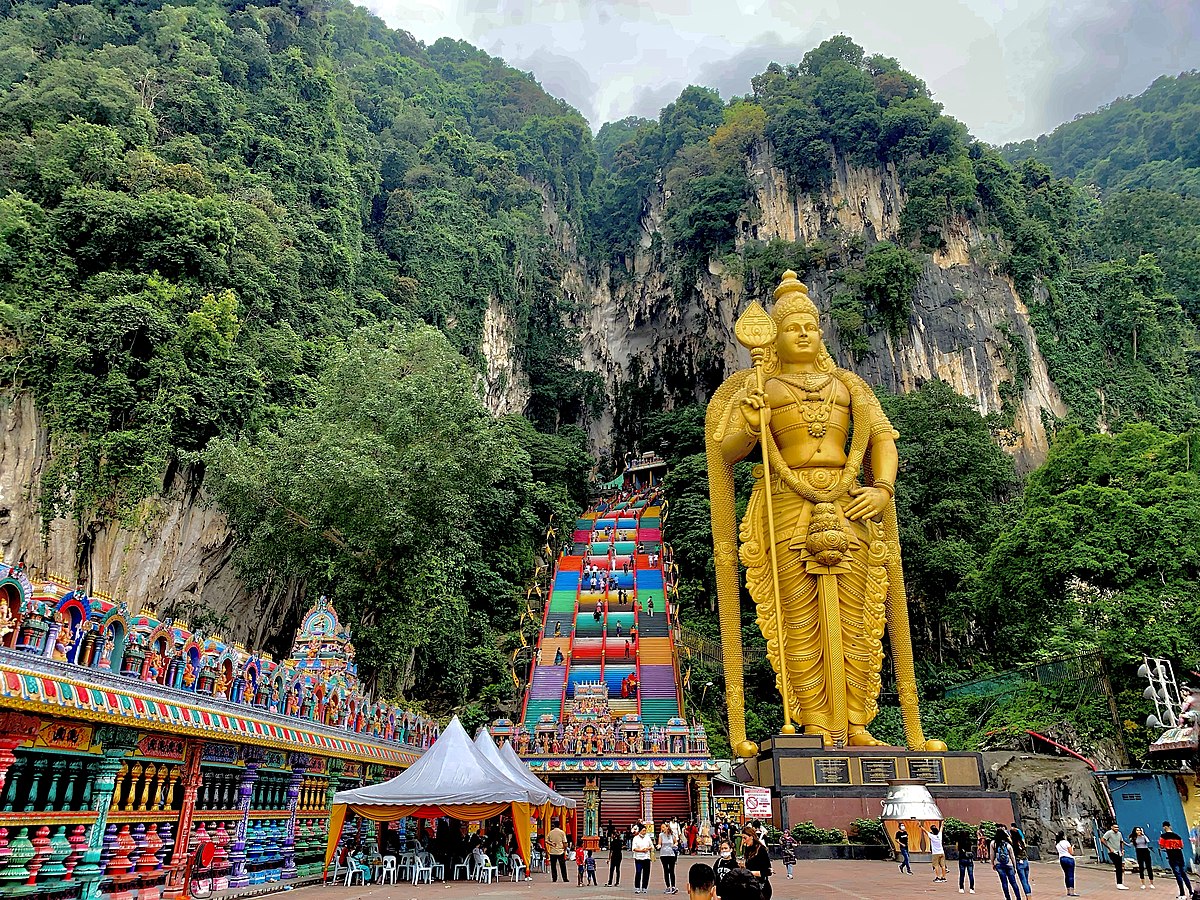
This year’s Thaipusam celebration at Batu Caves anticipates the participation of two million devotees. To facilitate the smooth flow of the festival, several road closures have been implemented. Simultaneously, a “Clean Thaipusam” campaign is underway, with a dedicated team of volunteers working diligently to clear the litter strewn along the procession route.

The temple area is bustling with a multitude of devotees, creating a vibrant atmosphere. Many devotees are seen carrying kavadis and paal kudams as they ascend the 272 steps, a symbolic and spiritual journey to witness the divine presence of Lord Murugan. The fervor and dedication exhibited by the devotees during Thaipusam underscore the significance of this sacred celebration at Batu Caves.
Arulmigu Balathandayuthapani (Thanneermalai) temple, Penang
Thaipusam at the Arulmigu Balathandayuthapani Temple, also known as Thanneermalai Temple, in Penang is a spiritual extravaganza that draws devotees from near and far. Nestled atop a picturesque hill in the Waterfall Road area, this temple becomes a focal point for the vibrant celebrations associated with Thaipusam. The Thanneermalai Temple, dedicated to Lord Murugan, exudes a serene charm with its hilltop location offering panoramic views of Penang. Thaipusam marks a significant time for devotees to converge at this sacred site to express their devotion and engage in religious ceremonies.
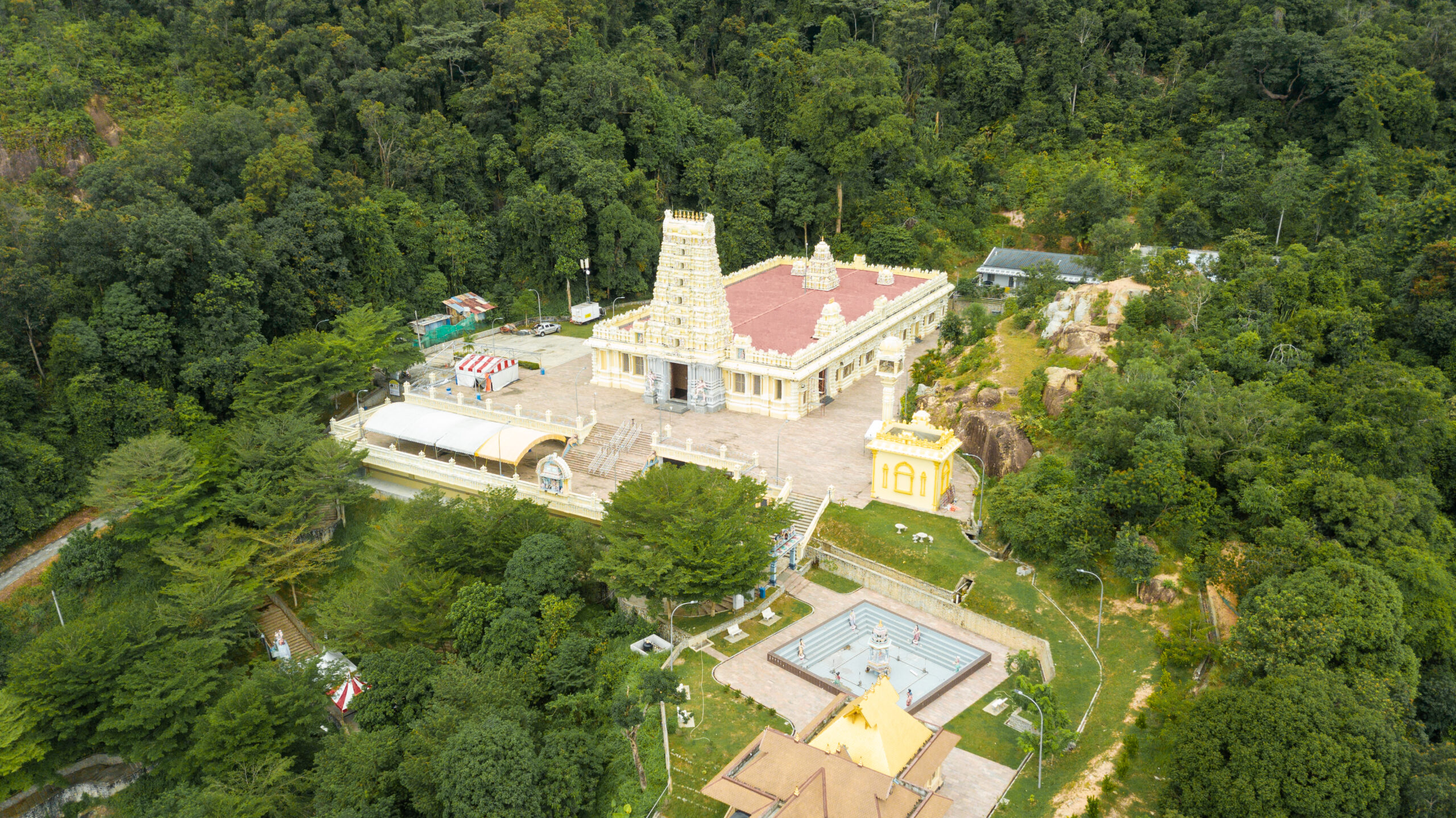
The culmination of Thaipusam at the Balathandayuthapani Temple in Penang is marked by the grandeur of the silver and golden chariot processions. These processions, carrying the deities and the vel through the vibrant streets of Penang, elevate the festival to new heights of splendor. The commencement of the Thaipusam festivities in Penang sees the departure of the golden chariot from the Sri Mahamariamman Temple on Queen Street, making its way towards the Arulmigu Bala Thandayuthapani Waterfall Hilltop Temple located in Jalan Kebun Bunga. Simultaneously, the silver chariot embarks on its journey, commencing from the Kovil Veedu Temple situated in Lebuh Penang, ultimately reaching its destination at the Nattukotai Chettiar Temple, also situated in Jalan Kebun Bunga.
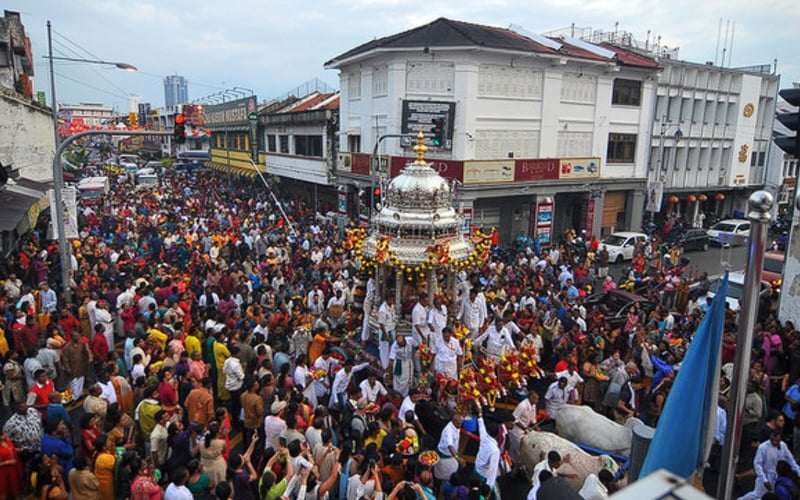
A defining element of Thaipusam at Thanneermalai Temple is the challenging ascent up the steep staircase, comprising 513 steps, leading to the main shrine. Devotees, dressed in resplendent traditional attire, carry kavadis adorned with peacock feathers and flowers, as well as paal kudams or milk pots, as they ascend the hill. The climb is not just a physical effort but a symbolic manifestation of the devotees’ spiritual journey towards enlightenment, signifying their dedication and devotion to the divine.
Kallumalai Arulmigu Subramaniyar temple, Ipoh
The Thaipusam celebration at Kallumalai Temple in Ipoh is a vibrant and spiritually enriching event that attracts devotees and visitors from near and far. Nestled in the lush greenery of the Ipoh, Perak Kallumalai Temple provides a tranquil setting for this auspicious occasion dedicated to Lord Murugan. The festivities at Kallumalai Temple during Thaipusam offer a unique blend of religious fervor, cultural traditions, and natural beauty.
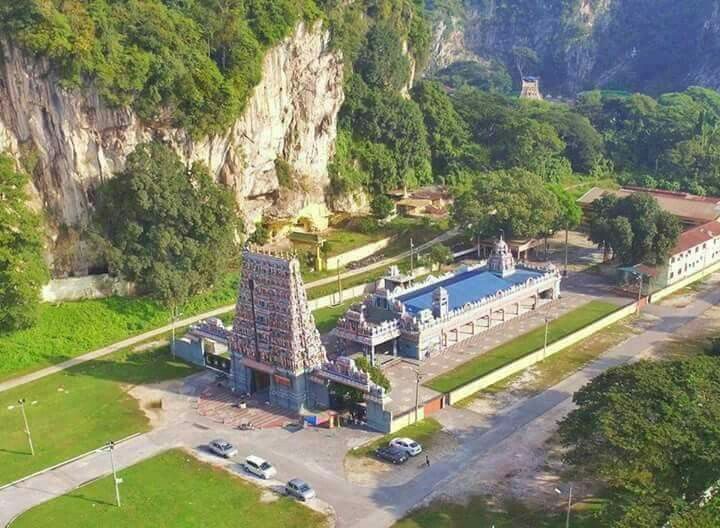
Devotees begin their pilgrimage to Kallumalai Temple in the days leading up to Thaipusam, often embarking on a spiritual journey through the scenic surroundings as a form of preparation. The temple comes alive with the sounds of prayers, hymns, and the fragrance of incense as devotees gather to express their devotion and seek blessings.
As part of the Thaipusam rituals at Kallumalai Temple, devotees engage in acts of penance and self-sacrifice. Some carry paal kudams, pots filled with milk, symbolizing purity and devotion, while others undertake the piercing of their bodies as a profound expression of faith. These acts serve as powerful demonstrations of the devotees’ commitment and reverence towards Lord Murugan.
Follow us on Instagram, Facebook or Telegram for more updates and breaking news.


